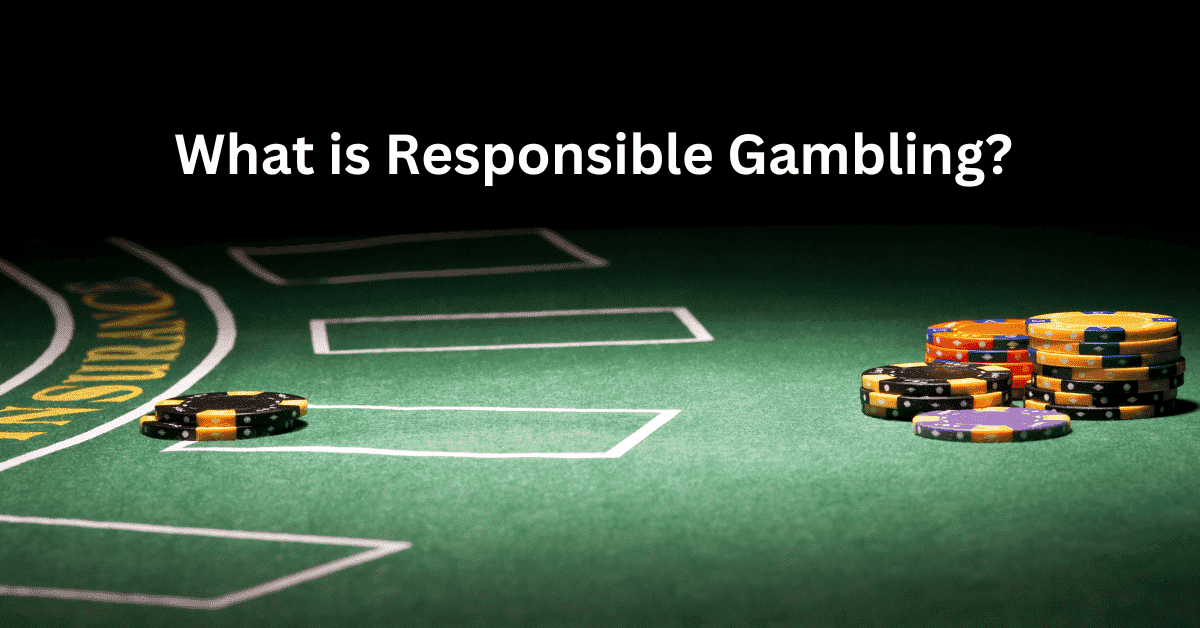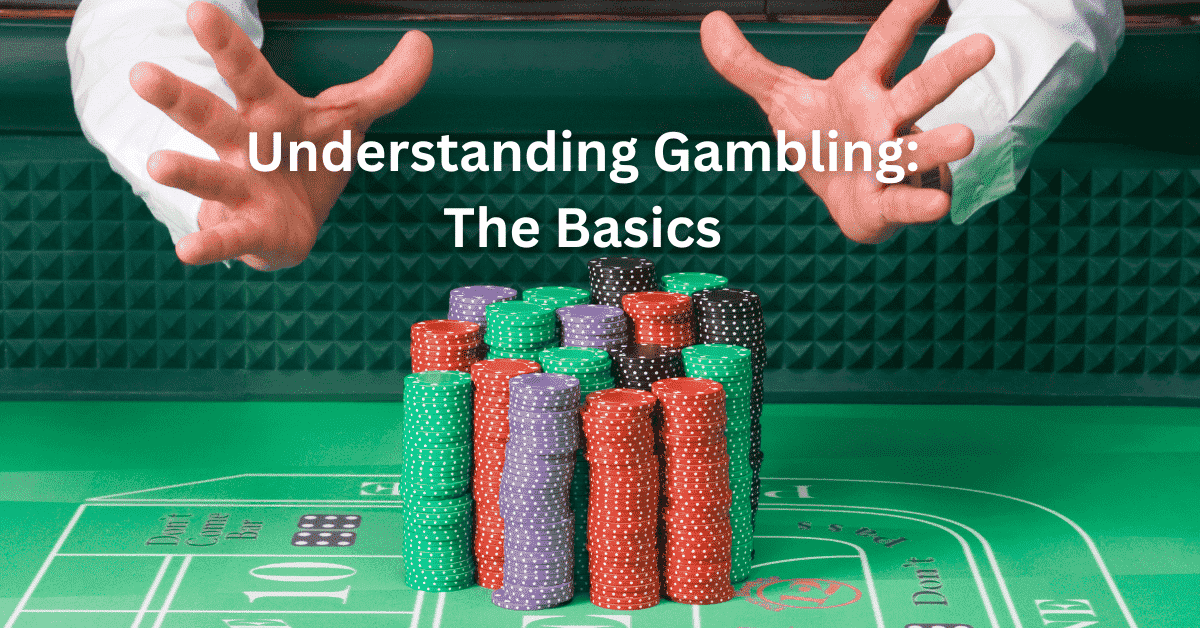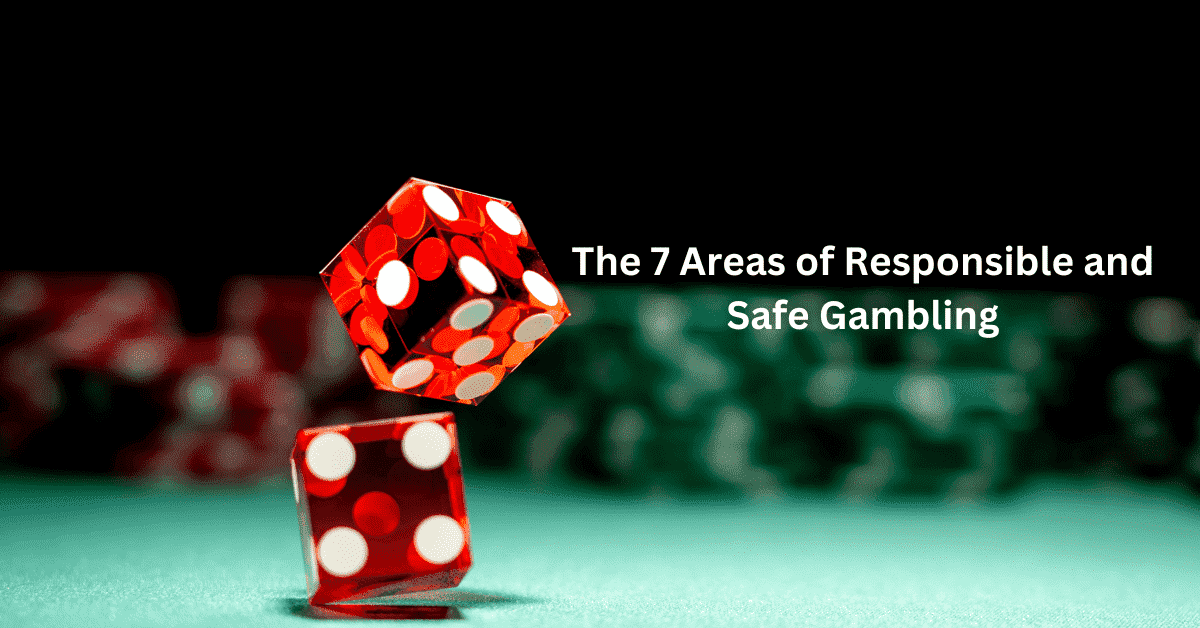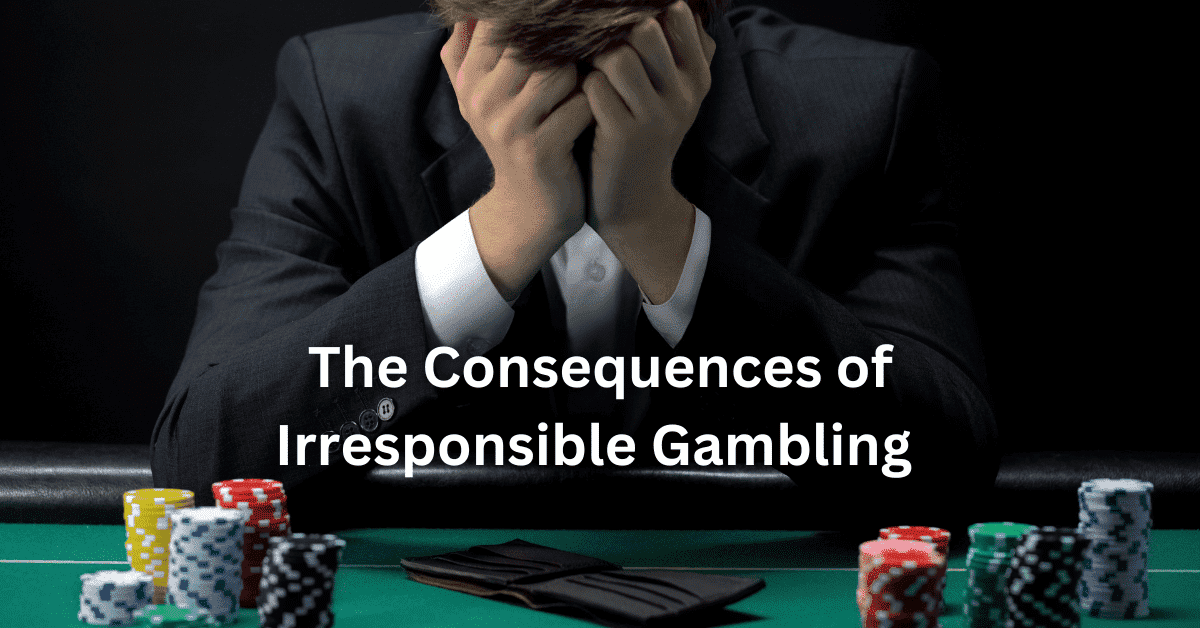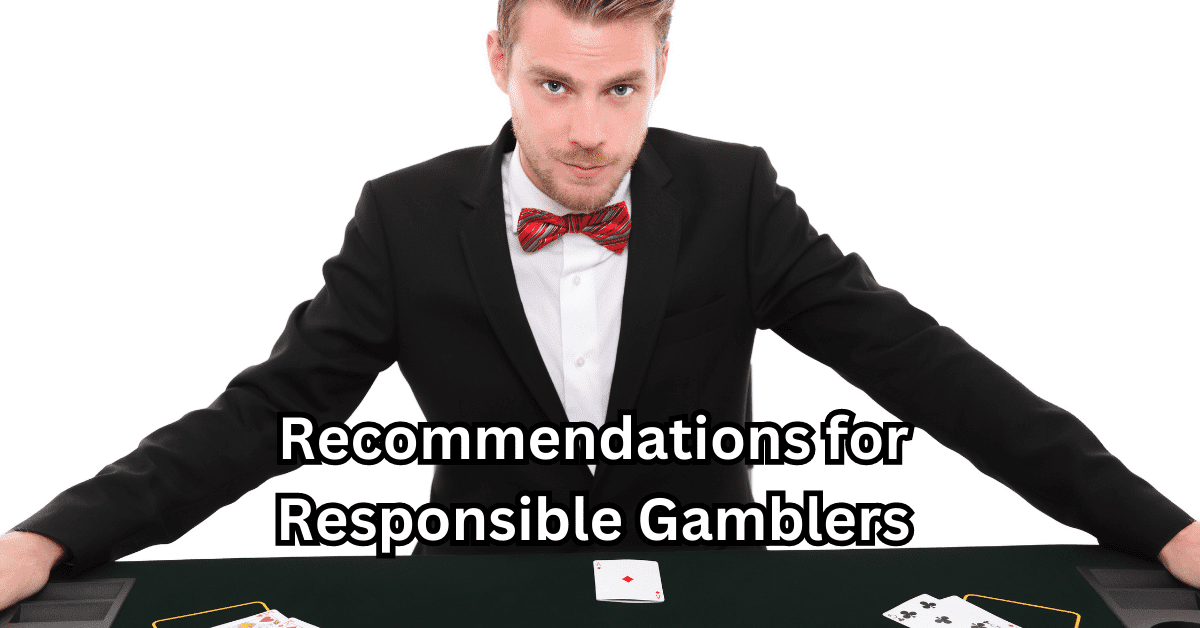The prevalence of irresponsible gambling has become a growing concern in recent years. Today, 14% of Malaysians are involved in online games, warranting a closer examination of its impact on individuals and society. Responsible gambling encompasses practices and behaviours prioritising the well-being of individuals who engage in gambling activities.
In this article, we delve into responsible gambling to shed light on its significance and promote a better understanding of its principles.
Understanding Gambling: The Basics
A Brief History
From ancient civilisations to modern times, gambling has captivated people across cultures and continues to be a popular form of entertainment.
Ancient Origins
- The earliest six-sided dice were discovered in Mesopotamia around 3000 BC, indicating the existence of games of chance.
- Ancient Egyptians played a game called “Senet,” which involved a board and dice.
- The Greeks had their own gambling games, such as “Kubeia,” involving dice throwing.
Roman Influence
Gambling gained popularity during the Roman Empire. Romans enjoyed various forms of gambling, including dice games, board games like “Tabula,” and even betting on chariot races and gladiator battles. However, gambling was viewed as a moral vice as the empire declined, leading to restrictions and prohibitions.
Middle Ages and Renaissance
During the Middle Ages, gambling faced periods of acceptance and prohibition influenced by religious and moral concerns. Card games like “Tarot” and “Gleek” gained popularity in Europe. In the Renaissance era, gambling flourished among the upper classes, with Italian and French courts fostering the development of card games.
American Frontier
The expansion of European settlers to North America brought gambling to the New World. Gambling was prevalent in frontier towns, with saloons housing card games and other forms of wagering. The California Gold Rush in the mid-1800s fueled gambling activities, leading to casinos and gambling houses.
Casino Culture and Las Vegas
The 20th century witnessed the rise of casino culture and the birth of iconic gambling destinations. In 1931, Nevada legalised gambling, paving the way for the development of Las Vegas. The city became synonymous with casinos, extravagant resorts, and entertainment, attracting visitors from around the world.
Technological Advancements
The digital age revolutionised gambling with the advent of online gambling in the 1990s. The internet enabled individuals to participate in various gambling activities remotely. Online casinos, sports betting platforms, and poker websites provided unprecedented convenience and accessibility to gambling enthusiasts.
The Psychology of Gambling: Why People Gamble?
Gambling is a complex behaviour influenced by various psychological factors. One of the critical elements is the concept of risk and reward. Humans are naturally drawn to uncertainty and the possibility of gaining something valuable. Gambling allows individuals to experience the thrill of taking risks and potentially obtaining significant rewards.
Psychological research has shown that the anticipation of winning activates the brain’s reward system, releasing dopamine, a neurotransmitter associated with pleasure and motivation. This neurochemical response reinforces the behaviour, making gambling a potentially addictive activity.
Another psychological factor at play is the illusion of control. Many gamblers believe they have some influence over the outcome of a game or their chances of winning. It provides a sense of empowerment and reduces risk perception, leading individuals to engage in more gambling behaviour.
The 7 Areas of Responsible and Safe Gambling
These principles serve as a guide to ensure that gambling remains an enjoyable and controlled activity. Here are the key areas of responsible and safe gambling:
-
Awareness and Education
Responsible gambling begins with raising awareness and providing education about the potential risks and consequences associated with gambling. It includes informing individuals about the odds of winning, the nature of random outcomes, and the signs of problematic gambling behaviours.
-
Player Protection
Protecting players’ protection involves preventing underage gambling, identity verification, and safeguarding personal and financial information. It also includes providing resources and support for individuals experiencing gambling-related harm.
-
Self-Assessment and Limit Setting
Encouraging individuals to engage in self-assessment helps them better understand their gambling habits and potential risks. Providing tools for players to set limits on their time and spending allows for better control over their activities.
-
Financial Responsibility
Responsible gambling emphasises the importance of maintaining financial control. It involves encouraging individuals to gamble within their means and avoid chasing losses. Providing access to financial management tools and resources can assist players in making informed decisions about their gambling budget.
-
Fairness and Integrity
Ensuring fairness and integrity in gambling activities is crucial. It includes promoting transparency in odds and payouts, implementing responsible advertising practices, and preventing fraudulent behaviour and cheating.
-
Player Support
Responsible gambling involves supporting individuals with gambling-related problems, including helplines, counselling services, and self-exclusion programs.
-
Collaboration and Regulation
Responsible gambling requires collaboration among all stakeholders, including gambling operators, regulators, policymakers, and public health organisations. Effective regulation and oversight help enforce responsible practices, protect players, and promote a safer gambling environment.
The Consequences of Irresponsible Gambling
While gambling can be enjoyable, the negative impact of excessive and irresponsible gambling can be significant.
-
Financial Devastation
Irresponsible gambling can lead to severe financial consequences. Individuals may gamble with money they cannot afford to lose, resulting in substantial financial losses. Neglecting essential expenses such as rent, bills, and basic needs further exacerbates the financial strain. The repercussions extend beyond personal finances, affecting relationships and overall well-being.
-
Mental Health Impacts
The constant cycle of winning and losing can develop into a compulsive behaviour pattern, leading to addiction. It often coexists with anxiety, depression, and an increased risk of suicide. Individuals may experience guilt, shame, and hopelessness, leading to a deteriorating quality of life.
-
Legal and Criminal Consequences
Engaging in illegal gambling can result in legal penalties and fines. Individuals may resort to illegal activities to fund their gambling habits, such as theft, fraud, or embezzlement. It can lead to legal trouble, imprisonment, and a tarnished reputation, affecting future opportunities. The Malaysian government has increased the penalty for illegal gambling from RM5000 to RM100,000 with a minimum of 6 months jail time.
-
Impact on Physical Health
Stress and anxiety can lead to sleep disturbances, changes in appetite, and increased risk of chronic health conditions. Neglecting self-care and engaging in unhealthy coping mechanisms like substance abuse further deteriorates physical well-being. High levels of gambling can increase the mortality rate by 37%, according to an Oxford study.
What Can Casinos Do? Roles and Responsibilities
Casinos have a significant role and responsibility in promoting responsible gambling and mitigating its potential negative consequences. Here are some key actions casinos can take:
-
Implement Responsible Gambling Measures
Casinos can implement various measures to promote safe and controlled gambling environments. It includes setting limits and offering self-exclusion programs for individuals who need to restrict their gambling access.
-
Train Staff
The staff should receive comprehensive training on responsible gambling practices. They should be educated on recognising signs of problem gambling, understanding the importance of intervention, and providing appropriate support and referrals to help individuals seeking assistance.
-
Collaborate with Support Organizations
Casinos can establish partnerships and collaborate with support organisations specialising in gambling addiction and assisting affected individuals. By working together, they can ensure that individuals can access resources, counselling services, and treatment programs when needed.
-
Data Analysis and Intervention
It is crucial for casinos to identify gambling patterns and behaviours indicating potential gambling problems. Doing that helps casinos intervene early by providing personalised support to individuals at risk of developing gambling addictions.
-
Responsible Marketing Practices
Casinos should adopt responsible marketing practices, ensuring their advertisements and promotional materials do not target vulnerable populations or encourage excessive gambling. They should also include clear and transparent information about the odds of winning and potential risks associated with gambling.
Recommendations for Responsible Gamblers
Practising responsible gambling is essential for individuals who want to enjoy the activity while minimising the potential negative consequences. Here are some recommendations for responsible gamblers:
-
Set a Budget
Establish a gambling budget that is based on your financial situation and limits. Determine an amount you can comfortably afford to lose without causing financial strain. Stick to this budget and avoid chasing losses by wagering more than planned.
-
Know the Games and Odds
Educate yourself about the games you are playing and understand the odds of winning. Different games have different probabilities, and knowing the odds can help you make informed decisions and manage expectations.
-
Set Time Limits
It’s easy to lose track of time while engrossed in gambling. Setting a predetermined time limit ensures that it does not interfere with other important aspects of your life.
-
Avoid Emotional Gambling
Avoid gambling to cope with negative emotions or escape from problems. Emotional gambling can lead to impulsive decisions and excessive betting. Instead, find healthier ways to deal with stress, such as exercise, hobbies, or spending time with loved ones.
-
Seek Support and Self-Reflection
Be honest with yourself about your gambling habits and assess whether they are still enjoyable and under control. If you find it challenging to stick to responsible gambling practices, reach out for support. Seek help from support organisations, counselling services, or helplines specialised in gambling addiction.
Conclusion: The Win-Win of Responsible Gambling
Responsible gambling is a win-win situation, benefiting individuals and communities alike. By setting limits, understanding the odds, and seeking support, individuals can enjoy gambling responsibly while minimising negative consequences.
Casinos’ commitment creates safer environments and ensures help is available. Embracing responsible gambling practices leads to a balanced and enjoyable gambling experience.
FAQs
2. What is an example of responsible gambling?
An example of responsible gambling is setting a budget, knowing and accepting the risks, gambling for entertainment rather than chasing losses, and seeking help if gambling becomes problematic.
3. Why is responsible gambling important?
It is important to prevent gambling-related harms, protect vulnerable individuals, promote a safer gambling environment, and ensure the sustainability of the gambling industry.
4. How can technology help in promoting responsible gambling?
Technology can aid responsible gambling efforts through features like age verification, self-exclusion programs, real-time spending limits, and personalised player support and education.
5. What are the legal obligations of casinos towards responsible gambling?
Legal obligations of casinos involve:
- Implementing age verification.
- Offering player protection resources like self-exclusion options and helplines.
- Adhering to responsible gambling advertising guidelines.
- Providing staff training and reporting compliance to regulatory authorities.
